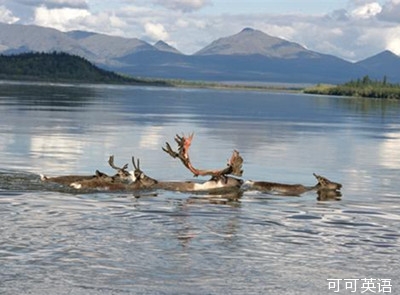'At the beginning, of course, you can't really pull apart religion and art can you? Art is sacred because it is taking you to this space where you're not just doing the subject/object arm's-length approach to nature, it takes you to a new place and that's a religious activity. It's only as time goes on that religion becomes much more involved with issues around power, and art becomes much more involved with issues around self-expression, and these days, the two often look at each other from separate mountain peaks, peering in a puzzled kind of way through the mists.
“在最开始的时候,你肯定不能真正地把宗教与艺术区分开来的,不是吗?艺术是神圣的,因为它将你带领到另一个空间,让你不仅仅是主体与客体方式对待大自然,并且保持着一臂之距的疏离感。它同时带领你走进一个新领域,这便是一种宗教行为。只是在勿勿时光流逝中,宗教演变得越来越是涉及围绕权力之类的问题,而艺术越来越成为一种表达自我的方式;到了今天,两者往往是分别高居于两座巍然屹立的高峰之上,透过迷雾用谜一般的眼光审视着对方。”
'I don't think that primitive human beings just had a ready-made word in their heads that sounded like 'God', and they immediately knew what it was. They were discovering how to be human in a world that was much more complicated because of their intelligence, and because of the new environmental challenges they were working with, and slowly the world - how should I say it? - almost reshapes itself. With that, and in your identification with the processes of the world, you begin to understand or intuit what in the 'Old Testament' is called 'wisdom', a kind of principle of cohesion or cohesiveness underlying it all, and you identify that eventually with the mind of God.'
“我不认为远古人类脑中能有现成‘神’这个字,并能立刻感知‘神’的含义。随着他们自身智力发展,及他们自身正在对付的各种挑战,这世界变得越来越复杂,而他们还正在探索着如何成为这世界中的人类;慢慢地,这世界就,怎么说呢,几乎重新塑造了自身。凭借这点,加上在你自身识别这世界的过程中,你开始理解了,或者直觉地感受到了那《旧约》中所称的‘智慧’,一种最本质最基础的凝聚力或融合力,最终你能够定义了‘神’的含义。”
It seems that much of the art made around the world at the time of the Ice Age did have a religious dimension, although we can only guess at any ritual use. This art is part of a tradition still very much alive today, and it's also part of an evolving religious consciousness which still shapes many human societies. Objects like this sculpture of swimming reindeer take us into the minds and imaginations of people like us - into a world unseen but understood. And I think it's that ability to see beyond the functional and the physical - to use our imaginations - that ultimately makes us modern. At the time our swimming reindeer were carved in Europe, the people of north-east Asia were about to settle the Americas. That's for the next programme.
看来,冰河时代时世界各地的艺术品确实大部分都渲染上宗教的色彩,尽管我们只能猜测究竟是运用于什么仪式用途。这种艺术仍然是当代非常活跃的一种传统,同时也是一种不断塑造着人类社会、演化中的宗教意识。像这种游水驯鹿雕塑像这样的物品,把我们带近那些具有与我们相同的思想与想象力的原始人类,进入一个看不见但了解得到的世界。我想正是这种能超越功能与物质的见解能力,最终使我们成为现代人。当欧洲的定居者雕刻出我们这件驯鹿雕塑时,东北区地区的人类即将要在美洲安家。这将是下期节目的内容。













